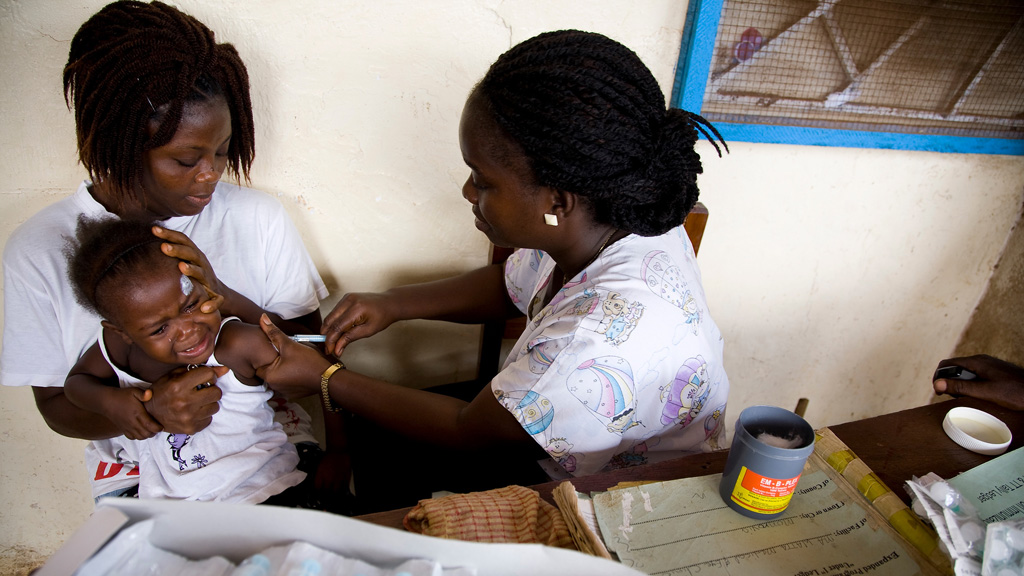Praise for post-conflict Africa’s war on child mortality
As Unicef releases figures showing that more children now survive their fifth birthday than ever before, a charity praises the efforts of two post-conflict African nations on child mortality targets.

Since 1990, the number of under five deaths worldwide has declined from nearly 12 million in 1990 to 7 million in 2012 – according to a report from the United Nation’s child welfare organisation.
This equates in a drop in the global under-five mortality rate by41 percent – from 87 deaths per 1,000 live births in 1990 to 51 in 2011.
Liberia and Rwanda, two countries who have suffered from civil war and genocide in recent years, are amongst nine low-income countries who have reduced their under-five mortality rate by 60 per cent or more.
Bangladesh, Cambodia, Ethiopia, Madagascar, Malawi, Nepal and Niger have also reduced their under five mortality rate by more than half since 1990, with the more affluent countries of Laos and East Timor also progressing well.
But despite this progress, Unicef has said that a global target on reducing child mortality risks being missed at the global level.
It has been 12 years since world leaders committed to Millennium Development Goal 4 (MDG 4), which sets out to reduce the under-five mortality rate by two-thirds between 1990 and 2015.
Preventable diseases
With just three years to go, as many as two thirds of children still die before their fifth birthday of infectious diseases – nearly all of which are preventable.
The highest rates of child mortality are still in sub-Saharan Africa where one in nine children dies before the age of five, more than 16 times the average for developed regions.
The report identifies a growing disparity between both sub-Saharan Africa and southern Asia when compared to other regions.
But despite lagging behind most of the rest of the world, sub-Saharan Africa has seen a faster decline in its under-five mortality rate, with the annual rate of reduction doubling between 1990–2000 and 2000–2011.
A spokesperson for Unicef singled out Liberia’s achievement as even more impressive, considering that it had been involved in a civil war for the first half of the period measured.
Since 2003, with the help of international aid Liberia has rebuilt its healthcare system, improving access to basic services such as HIV testing, malaria treatment, immunisation and pregnancy and maternal health care.
However, there has been criticism that some countries have been recieving aid for healthcare whilst simultaneously funding expensive military operations. Rwanda recently had money from the UK withheld because of its action in the Democratic Republic of the Congo.
The UK government’s international development minister Lynne Featherstone said it was heartening to see a real reduction in child mortality figures but she aded that it is shocking that children worldwide are still dying of preventable causes:
“This is why are we are committed to help immunise up to 250 million children in developing countries by 2015.
“We will strive to save the lives of at least 250,000 newborn babies by the same date and we are tackling big killers such as inadequate nutrition and poor water and sanitation.
‘Empowering women’
“We will also save children’s lives by improving the welfare of their mothers: by keeping more girls in school, by empowering women to decide when and if to have children, and by ensuring access to skilled care when they do.”
Simon Wright, head of child survival at the charity Save the Children, said international aid was making a difference, particularly in Liberia, which had not been able to invest in healthcare during the civil war.
He said Laos has invested in paediatric health care, while Rwanda had done more than any other African country to put in place a universal health system.
But he added that the main credit for these countries’ progress can be attributed to individual national governments choosing to prioritise the health of infants and their mothers through programmes that are often funded by taxation rather than aid.
“The common thing between these countries is they have taken on the principle that healthcare should be available to all,” he explained.
“All have removed their fees or set up the right kind of health insurance schemes so people can access healthcare when they need it rather than when they can afford it.”
Tackling health inequalities
“Millennium development goals are a very powerful set of targets because they were agreed by all of the 190 states, rather than a case where rich countries hold poor countries to account.”
But Mr Wright said that other countries could learn from the example of the nations leading the way on MDG4, particularly Nigeria, which has huge health inequalities despite promising economic potential.
“African countries made a commitment to spend 15 per cent of their budget on health,” said Mr Wright. “Liberia is, Rwanda is getting closer but Nigeria is way, way, below that.”